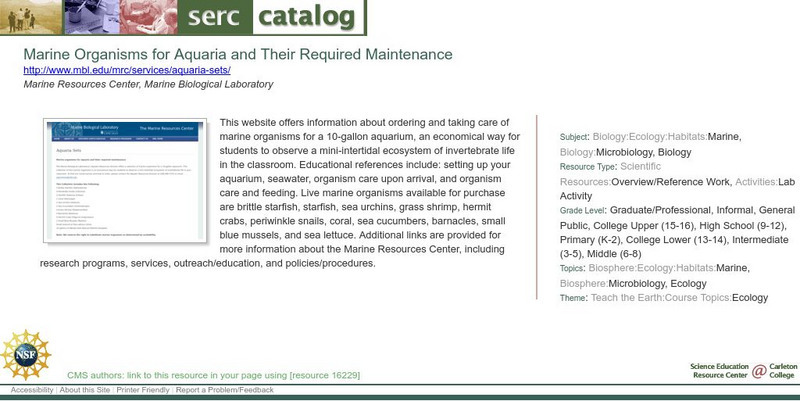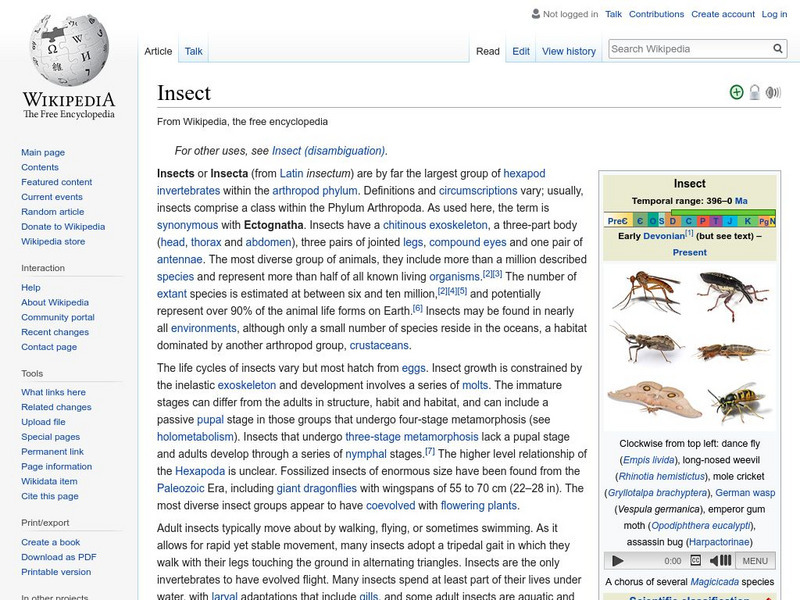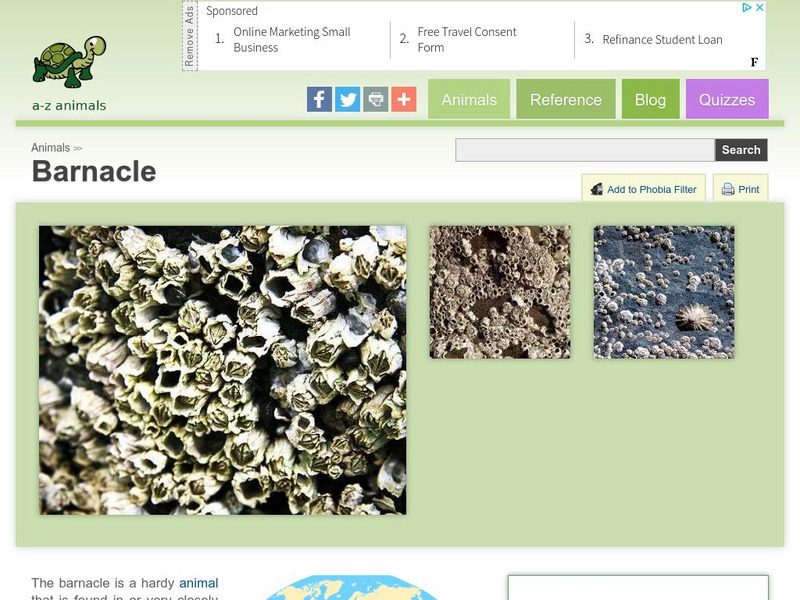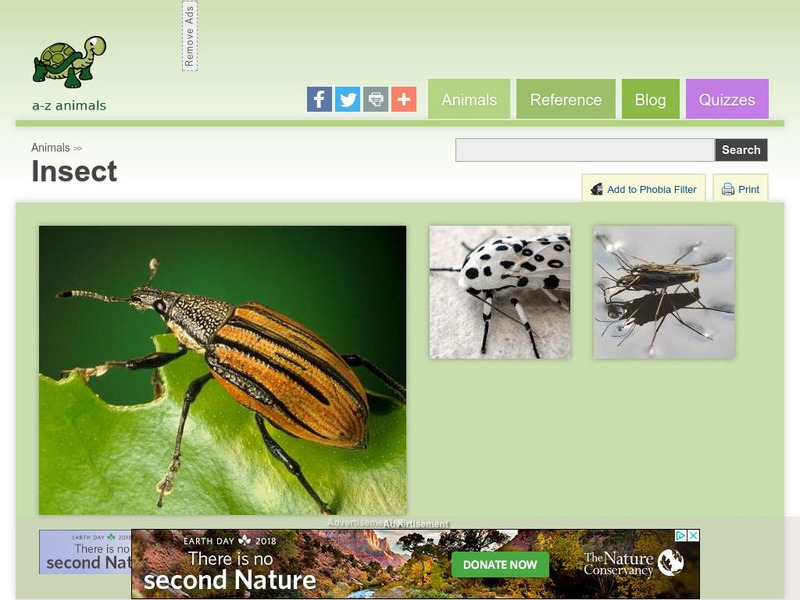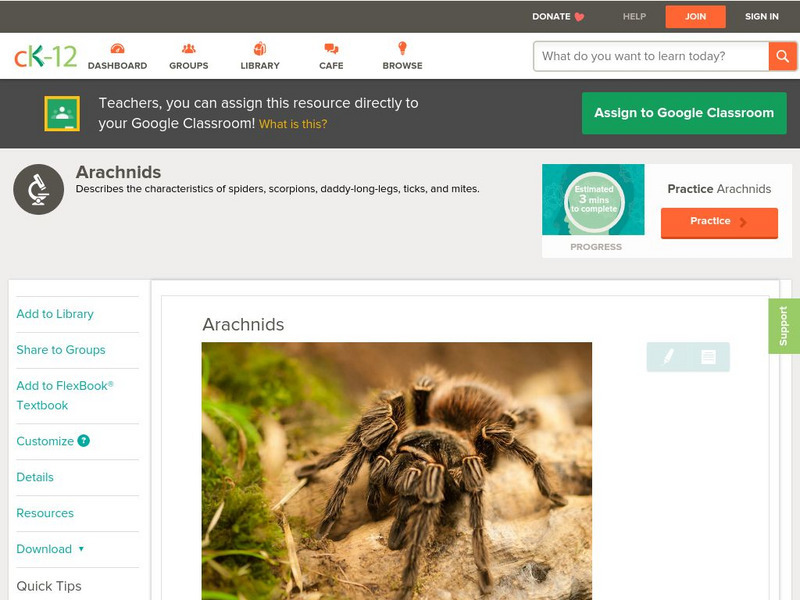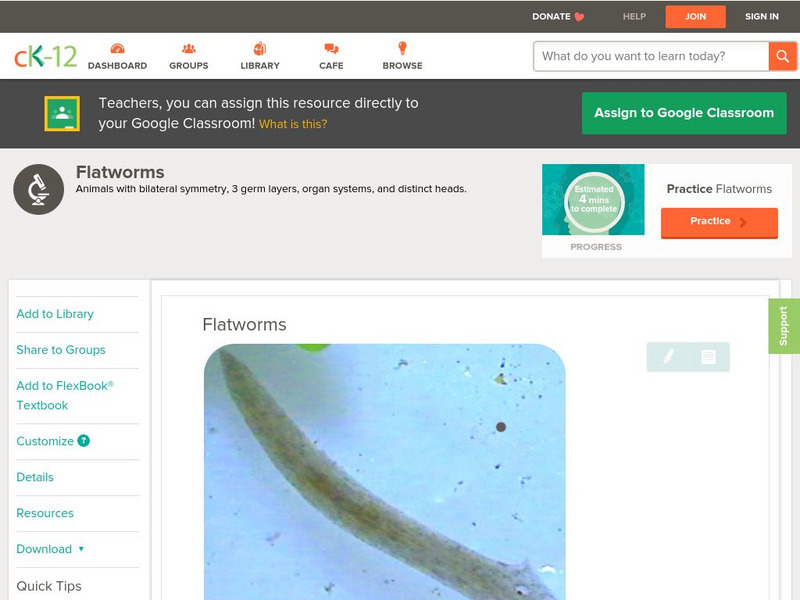Hi, what do you want to do?
Canadian Museum of Nature
Canadian Museum of Nature: Natural History Notebooks
A great reference source for a variety of vertebrate and invertebrate animals. This exhaustive resource also has some prehistoric extinct animals that students can compare to their living counterparts to increase their understanding of...
Science Education Resource Center at Carleton College
Serc: Mn Step: Stream Study: Assessing the Relative Health of Streams
Students will collect invertebrate samples from three different streams using nets and kick-seines. They then identify what they have found and add the information to the whole class data. Afterward, students propose a new question about...
Science Education Resource Center at Carleton College
Serc: Marine Organisms for Aquaria and Their Required Maintenance
What can you do with an ocean animal aquarium in your classroom? This website offers information about ordering, setting up, and taking care of marine organisms for a 10-gallon aquarium which is a great way for students to observe a...
Missouri Botanical Garden
Missouri Botanical Garden: Temperate Oceans
This site from the Missouri Botanical Garden is a comprehensive site covering various topics related to temperate oceans. Be sure to check out the ocean animals link on the left side to learn more about the invertebrates that live in the...
Wikimedia
Wikipedia: Insects
Wikipedia offers detailed information on insects, invertebrate animals of the class Insecta.
TED Talks
Ted: Ted Ed: How Do Animals Experience Pain?
How do the animals all around us experience pain? Robyn J. Crook examines pain in both vertebrate and invertebrate animals. [5:06]
Other
Octopus of California
Twenty great pictures of octopi from California. This site also offers up close pictures of invertebrates, squids, and tidepools.
Other
Science
Get an overview of Antarctica. Find out what invertebrates, flowering plants, lichens, and mosses are living in this primitive ecosystem.
National Science Foundation
National Science Foundation: Fluorescent Coral
Justin Marshall researches fish and invertebrate color vision, color communication, and visual ecology of coral reefs and other habitats. He photographed this fluorescent coral under fluorescent lighting conditions
A-Z Animals
A Z Animals: Animal Facts: Barnacle (Cirripedia)
Explore the world of the Barnacle and discover information on the physical characteristics, habitat, and breeding of this invertebrate. Includes images and statistics.
A-Z Animals
A Z Animals: Animal Facts: Insect (Insecta)
Explore the world of insects and gain a greater understanding of these invertebrates through statistics and information on their appearance, habitat, behavior, and diet.
PBS
Idaho Ptv: Dialogue for Kids: Zoology
A collection of facts and links on the field of zoology. The facts cover what zoology is, the diversity of vertebrate and invertebrate animals studied in zoology, scientific names for animals, where zoologists work, zoos around the...
CK-12 Foundation
Ck 12: Life Science: Arachnids
[Free Registration/Login may be required to access all resource tools.] Arachnids are a class of joint-legged invertebrates in the subphylum Chelicerata. They live mainly on land but are also found in freshwater and in all marine...
CK-12 Foundation
Ck 12: Life Science: Chordates
[Free Registration/Login may be required to access all resource tools.] Did you know that fish, amphibians, reptiles, birds, and mammals are all related? They are all chordates. Chordates are a group of animals that includes vertebrates,...
CK-12 Foundation
Ck 12: Life Science: Flatworms
[Free Registration/Login may be required to access all resource tools.] The word "worm" is not very scientific. But it is a word that informally describes animals (usually invertebrates) that have long bodies with no arms or legs. Worms...
CK-12 Foundation
Ck 12: Third Grade Science: Life Sci: Animal Characteristics and Classification
[Free Registration/Login may be required to access all resource tools.] Presents an overview of the major animals groups (mammals, birds, reptiles, amphibians, fish, arthropods, vertebrates, invertebrates, those having live births and...
McGraw Hill
Mc Graw Hill Co: Arthropods Diverse and Ancient
A discussion of the history of arthropods and how they have been a very difficult species to classify over the years.
CK-12 Foundation
Ck 12: Biology: Insects
[Free Registration/Login may be required to access all resource tools.] Discusses characteristics of insects.
Smithsonian Institution
Smithsonian National Zoo
Here is the National Zoological Park right at our fingertips. Students will find many things to explore at this colorful and engaging site. Any study of animals will have a successful start here. Chances are students can catch their...
Other
Insectclopedia: Lesson Plans
A very comprehensive site from pedagonet.com that includes lesson plans on insects for all ages and grade levels. Students will enjoy learning about insects as you employ these engaging lesson plans in your own classroom.
Sea World Parks & Entertainment
Sea World: Animal Information Database
Sea World's site featuring a variety of information about their animals, as well as general animal information. Includes "Animal Bytes," a list of animals with some of their characteristics. Also includes some games and teacher resources.
Utah Education Network
Uen: Wonderful World of Insects
In this instructional activity, students will use simple classification schemes to sort Utah's common insects.
University of Illinois
University of Illinois Extension: Urban Text: Adventures of Herman the Worm
WORMS- What are they? Where did they come from? If you are interested in Herman the Worm's family tree (biologically speaking), his body structures, or all the facts about him that you'll ever need, go to "The Adventures of Herman the...
Utah Education Network
Uen: Macroinvertebrate Investigation
Introduces students to living aquatic macroinvertebrates.
Other popular searches
- Invertebrates and Vertebrates
- Marine Invertebrates
- Invertebrate Worksheets
- Invertebrates Vertebrates
- Vertebrates an Invertebrates
- Vertebrate and Invertebrates
- Benthic Invertebrates
- Invertebrates Research
- Invertebrates + Vertebrates
- Invertebrate Phylum
- Invertebrate Classification
- Invertebrate Sponge







